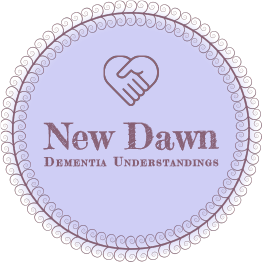INFANTILIZATION
As always let me begin by saying it is not my intention to paint all providers of Dementia care with a broad brush. There are many corporate entities, smaller providers and home caregivers who are truly getting it right, and to all of you, thank you. For those who may bristle at new concepts please consider that there are alternatives to our accepted model of Dementia care, and at the very least suitable middle ground. Not because I say so, but because there is a paradigm shift in Dementia care which does not render us the new sheriff in town because someone has Dementia and we do not. Which brings me to my buzzword of the day, “Infantilization”. We’ve learned a new word now let’s take a look at the meaning of the word and how we’ve adopted it to restrict, deny and discriminate against Persons Living With Dementia (PLWD).
INFANTILIZATION. Here’s the dictionary meaning verb (used with object), in·fan·til·ized, in·fan·til·iz·ing: “to keep in or reduce to an infantile state. To treat or regard as infantile or immature”. Key words: “reduce to; treat or regard as immature”.
Do we not realize that each time we make a decision for a PLWD without their input and without consideration of their preferences, or tell them what they can and cannot do we’re Infantilizing them? The debate goes on over dolls, mechanical pets, adult coloring books, and balloon toss in Memory Care communities. While many understand the therapeutic values of these things, there are some who are vociferously opposed to such activities for PLWD claiming they Infantilize adults. Have we asked PLWD if they find enjoyment and would like to continue these activities? If not, and we do things “our way on their behalf” it is at that point that we are Infantilizing adults living with Dementia, not when we hand out mechanical pets and play Balloon Toss. Why are Adult Coloring Books, an item which are designed, marketed and sold to adult consumers considered to be Infantilizing for an adult with Dementia? Sounds a bit discriminatory, don’t you think? It’s another example of restricting something “because they have Dementia”.
Each time we “decide what is best” for a PLWD we are Infantilizing them. Something as small as not allowing PLWD to peel their own carrot because they might nick their finger is Infantilizing. What if any other adult nicks their finger? They’d put a bandaid on it and go back to their chore. Adhering to the policy of not speaking to any adult as if they’re a child so as not to Infantilize is a correct policy. It is when we add a caveat to the policy “because they have Dementia” that a sound policy becomes demeaning. Can we not just accept the fact that they’re adults and leave it at that?
We pick and choose what we feel may Infantilize PLWD, yet in so doing we are continually Infantilizing. Persons Living With Dementia may have cognitive challenges but to assume that we know best what they want and need and what they can and cannot do is the quintessential example of Infantilizing, and we do it every day. Yes, they may reach a point where cognitive impairment has affected their ability to make sound and safe decisions. I agree that we may need to step in and find middle ground which respects their wishes yet maintains safety, but such interventions on our part should be inclined by specific situations not suppositions.
Changes which are out of anyone’s control may ensue for PLWD, but self-determination and dignity do not need to be lost due to chronic and insidious Infantilization in their daily lives.
